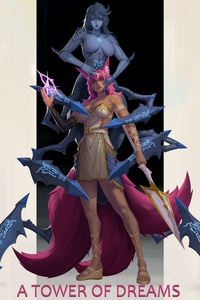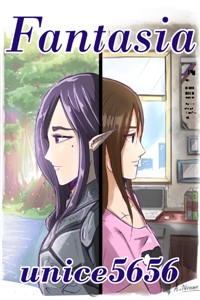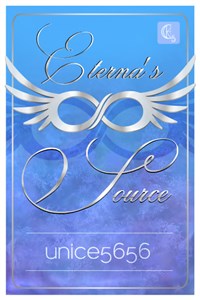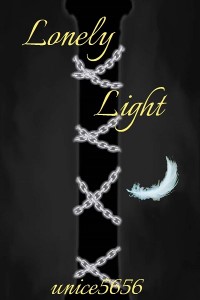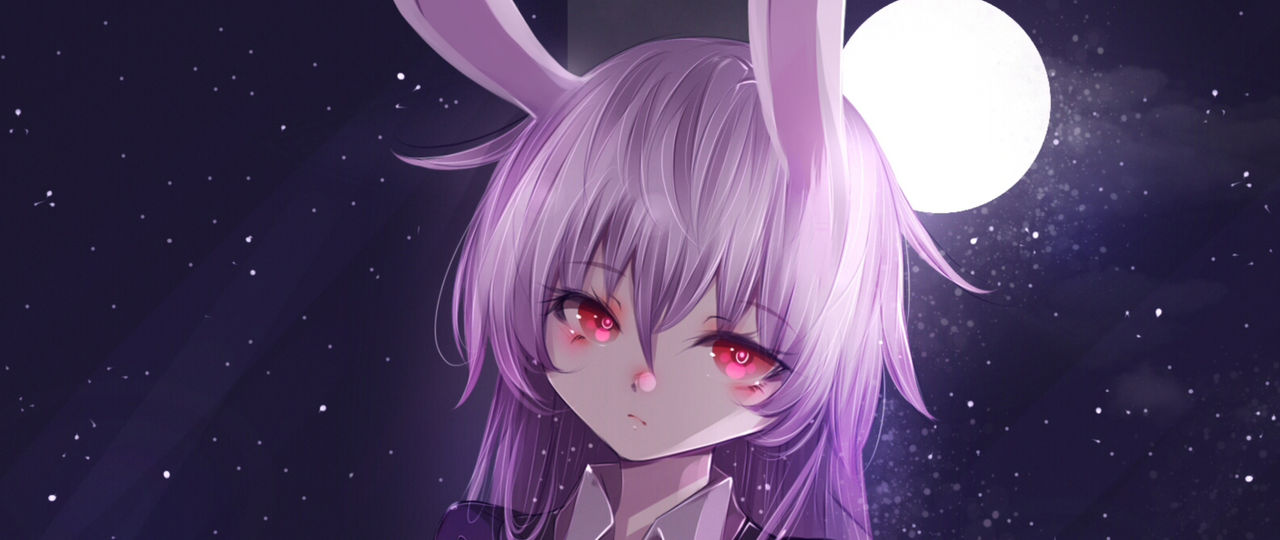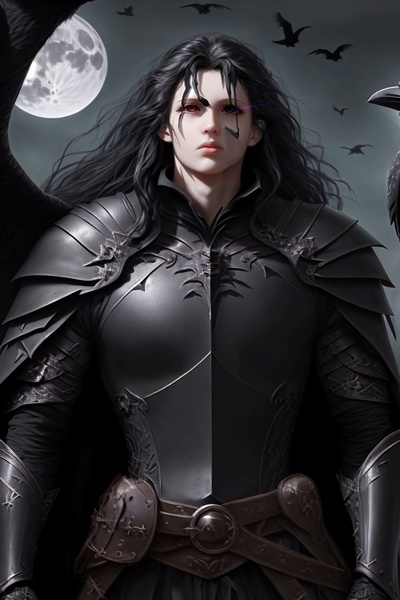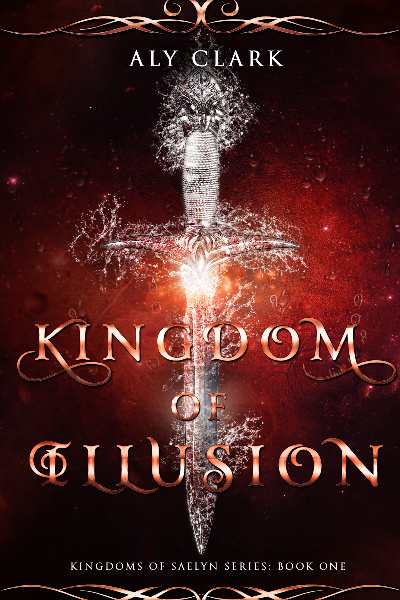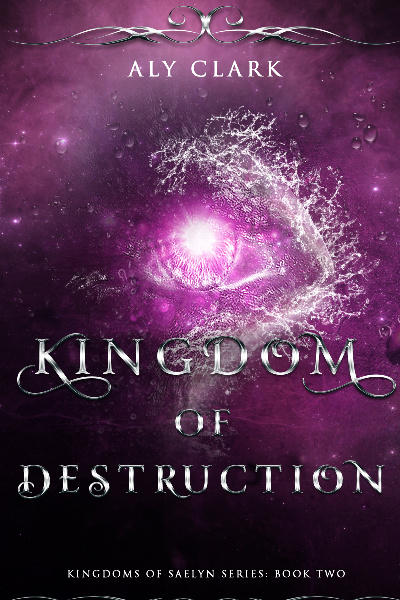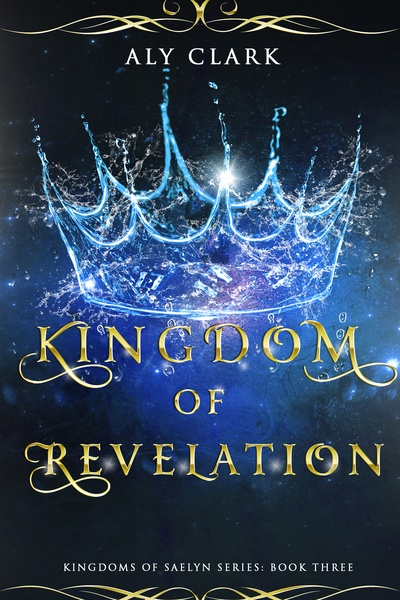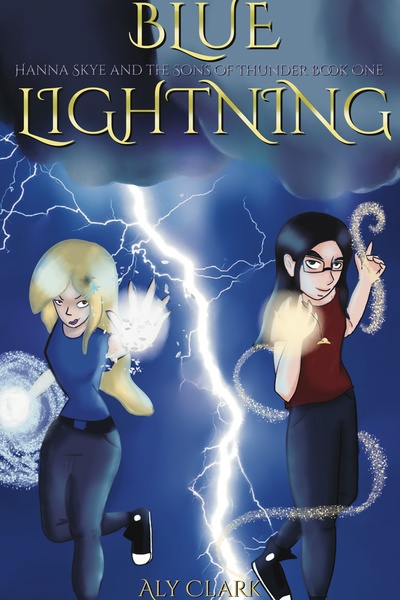Reviews Explained
#1
Now, I've been seeing a lot of reviews that are a bit off on certain things. So I'd like to clarify them a bit for the community.
Please do remember that this is only a simple Explanatory Guide, and it does not cover all the ways to define whether or not something is "Good" or "Bad"
Here, I'll be explaining what the segments of the reviews are for. First of all, we have:
Style is defined not by the qualities of the story, but by how the story is presented. Though some people may disagree, Style is not subjective.
There is a lot of various "Good" writing styles, but just as many "Bad" ones too.
Here's a few key things to remember on how to define "Good" Style (Examples in Parenthesis)
Now, here's a few things that define "Bad/Poor" style (Examples also in Parenthesis)
A good story, is pretty easily defined in terms of good or bad. A good story has a fun plot, interesting and entertaining characters, as well as the all important well defined setting for it take place in.
A setting does not have to be complex to be well defined, simpler settings can be just as good if not better then well defined but complex story settings.
Some ways to determine if a story is "Good"
And now, for some methods to determine whether or not a story is "Bad"
Now, we get to one of more difficult topics of reviewing. Grammar and Vocabulary.
Though Grammar is something many of us have to work on, including me, Vocabulary is something vital that is often overlooked.
A larger vocabulary can make a tremendous difference in a story, keeping things more fresh and less repetitive. Vocabulary is something we all, still including me, need to work on.
Here's some common grammar mistakes to remember:
Now, for a small list on what damages a tiny vocabulary potentially causes to writing:
With a larger vocabulary, writing is more enjoyable and more fresh. Similar scenes won't seem like the same old thing, but will actually feel different to the readers.
Now, characters are mainly up to the author. What kind of personality a character has, their backstory, all of that depends on the setting and desires of the author. Naturally, there are endless amounts of ways a character can be made.
Here's a few things that are quite important in terms of characters.
There are some things which can be cringe worthy in characters, and often times they fall under what I call "Stereotypical Stereotype" based characters.
Now, you this may make you wonder if there are non-stereotypical stereotype based characters. There are.
As an example, I'll be using some stereotypes that are commonly found in Anime/Manga/Light Novels. The Anime/Manga/LN stereotypes that shall be used as demonstration are:
Examples of Stereotypical Character Stereotypes (What are common, and often get annoying due to bad usages)
Non-Stereotypical Character Stereotypes (Examples of what the character types actually are defined as, instead of the commonly annoying stereotypical stereotype character)
Now, for Non-Stereotypical Stereotypes there are certain things to remember. The stereotype that is often associated with the words or type of character, often isn't what the actual character type.
Now, "Stereotypical Stereotype" characters aren't necessarily bad. Not at all. If used well, they can make for likable or story moving characters. However, the more of a "Stereotypical Stereotype" the character is, the harder it gets for them to be used well in a story.
So, any questions?
Please do remember that this is only a simple Explanatory Guide, and it does not cover all the ways to define whether or not something is "Good" or "Bad"
Here, I'll be explaining what the segments of the reviews are for. First of all, we have:
| Style |
Style is defined not by the qualities of the story, but by how the story is presented. Though some people may disagree, Style is not subjective.
There is a lot of various "Good" writing styles, but just as many "Bad" ones too.
Here's a few key things to remember on how to define "Good" Style (Examples in Parenthesis)
- A good style should be consistent in it's perspective, and should not change.
(E.G: A first person story should stay in first person, even when switching to someone else's point of view. Likewise, A third person story should stay in third person, even if the narrator changes.)
- A strong sense of Chronology is a must in all good writing styles.
(E.G: If Scenes A, B, and C should be read from A, to B, to C, it must be presented that way. Likewise, if scenes A, B, C should be presented in the order of B, C, A, they should presented that way. Changing the Chronology of a sequence can have drastic negative effects on the presentation of the story.
A strong chronology, will tie the scenes together in a flowing and pleasant read. But when chronology is weak, the scenes start seemingly having "Time gaps" in which things happen but the readers can't know.)
Now, here's a few things that define "Bad/Poor" style (Examples also in Parenthesis)
- Inconsistent Perspectives/Points of View
(E.G: Story perspective changes from First person, to Third person. Or from Third Person to first Person without reason to.)
- The Unstable Perspective
(E.G: Endless switching between the two perspectives in rapid succession.)
- Unstable Chronology
(E.G: If scenes A, B, and C are given in any order that isn't ABC in which they are supposed to be read, the Chronology becomes vague and confusing.)
| Story |
A good story, is pretty easily defined in terms of good or bad. A good story has a fun plot, interesting and entertaining characters, as well as the all important well defined setting for it take place in.
A setting does not have to be complex to be well defined, simpler settings can be just as good if not better then well defined but complex story settings.
Some ways to determine if a story is "Good"
- A good story requires some kind of "Plot" that ISN'T girls' busts
(This is one of the most important things to remember)
- Character Motivation
(A source of character motivation, is something that is needed in a good story. How many people would go "Off to risk my life in another world against a Demon Lord? Hell yeah!" The answer is simple. Very few would. And the more serious the story is, the more serious the source of motivation should be.)
- Strong Plot Devices
(E.G: A need to gather Magic Artifacts and seal them away before the Villain can obtain and use them for their dastardly goals.)
And now, for some methods to determine whether or not a story is "Bad"
- When you can't find any kind of "Plot" other then girls' busts, even in a harem based Ecchi comedy.
- Weak Plot Devices
(E.G: Deus Ex Machina, the worst type of plot device. It often accompanies unexplained power-ups, unexpected and entirely un-foreshadowed plot twists, or even the MC winning when they shouldn't be able to.)
- If a Character fall head over heels for person after person in rapid succession, it means the character interaction and relationships are either poorly written or the character has some mental problems. [ReshiNote: The latter isn't actually bad for a story, but the former..]
- People who don't have any real reason to actually antagonize the MC, are all evil jerks out to ruin them because the MC is the MC.
- A lack of slice of life scenes which damages character development. Such as a lack of the character being able to show things they like, things they dislike, and more of such small but important details that continuously build up the characters.
- When Setting logic is contradicted in the story. (E.G: Water Magic stone can't be burned with any type of fire. *A unspecified number of chapters later* Character incinerates the water magic stone with special fire magic.)
| Grammar and Vocabulary |
Now, we get to one of more difficult topics of reviewing. Grammar and Vocabulary.
Though Grammar is something many of us have to work on, including me, Vocabulary is something vital that is often overlooked.
A larger vocabulary can make a tremendous difference in a story, keeping things more fresh and less repetitive. Vocabulary is something we all, still including me, need to work on.
Here's some common grammar mistakes to remember:
- It's (It is) and Its (Possessive)
- Your (Possessive) and You're (You are)
- They're (They are) Their (Possessive) and There (Place)
- Possessive Nouns, such as Lizard's or Dress' ('s if the word does not end in a S, s' if it does.)
- Affect (Act of Change) and Effect (Change)
- Do's (Plural Do) and Don'ts (Plural Don't) often get forgotten when they could be used
- I.E (Rougly: That is) and E.G (Example given)
- Peek (Quick Look) Peak (Sharp point) and Pique (Provoke or instigate)
- Alot (Not an actual word) A lot (A large amount) and Allot (To give/apportion)
- Use of comma (,) instead of period (.)
Now, for a small list on what damages a tiny vocabulary potentially causes to writing:
- A smaller vocabulary makes things more repetitive and less entertaining to read
- Can greatly limit descriptive scenes
- Wastes the author's time as they try to figure out how to make it sound less repetitive
- Drains the feeling of freshness
- Possibly makes the reader doubt the writing skills and/or intelligence of the author (True story)
With a larger vocabulary, writing is more enjoyable and more fresh. Similar scenes won't seem like the same old thing, but will actually feel different to the readers.
| Characters |
Now, characters are mainly up to the author. What kind of personality a character has, their backstory, all of that depends on the setting and desires of the author. Naturally, there are endless amounts of ways a character can be made.
Here's a few things that are quite important in terms of characters.
- Character relationships with depth
(Rivalries, Love interests, Friends)
- Character Consistency
- (There aren't many, but there are the occasional nightmarish moments when I read a story and find that the character goes from utterly hating something to loving it to being indifferent about something all in a single chapter. Likewise, there are moments where characters are scared of something one moment, but have no fear of it the next.)
- Well Defined and properly used Non-Stereotypical Stereotype Personalities
(Using a stereotype is fine, but don't abuse it like this: Tsundere character yells "Baka" or "Idiot" every time her feelings are showing. Try to cultivate new takes off it, and use the stereotype without being stereotypical. Explanation of Stereotypical Stereotype below.)
There are some things which can be cringe worthy in characters, and often times they fall under what I call "Stereotypical Stereotype" based characters.
Now, you this may make you wonder if there are non-stereotypical stereotype based characters. There are.
As an example, I'll be using some stereotypes that are commonly found in Anime/Manga/Light Novels. The Anime/Manga/LN stereotypes that shall be used as demonstration are:
- Tsundere
- Yandere
Examples of Stereotypical Character Stereotypes (What are common, and often get annoying due to bad usages)
- Flat chested female Tsundere that yells "Baka!" or something similar and hits the MC whenever she feels shy, embarrassed or her feelings are being seen through.
- Yandere, the psychopathic girl with an extreme obsession towards MC and will attempt to harm anyone who she thinks the target of her affections may be interested in, or is interested in the person she loves.
Non-Stereotypical Character Stereotypes (Examples of what the character types actually are defined as, instead of the commonly annoying stereotypical stereotype character)
Now, for Non-Stereotypical Stereotypes there are certain things to remember. The stereotype that is often associated with the words or type of character, often isn't what the actual character type.
- The actual definition of Tsundere is a character that is cold at first, and warms up to people and shows their nicer side gradually. (E.G for those who watch anime: Senjougahara Hitagi)
- Yandere is defined as "Sick" love, not being psychotic. Not that there aren't psychotic Yanderes, but they aren't actually psychotic as a rule. A Yandere could be someone who is overly dependent on the person they love, or someone who is afraid of leaving their side. To put it simply, anyone who has an abnormal type of love towards someone else is a Yandere by definition.
Now, "Stereotypical Stereotype" characters aren't necessarily bad. Not at all. If used well, they can make for likable or story moving characters. However, the more of a "Stereotypical Stereotype" the character is, the harder it gets for them to be used well in a story.
So, any questions?
- Report this post
- Rep (56)
- Edited by ReshiMael at
RE: Reviews Explained
#2
Sadly it seems like I'm a victim of a bad writing style.
I changed from first to third on some of the chapters of my story and from past to present to past.
I don't know at that time I was trying to find my own style. Even now I switch to using past tense again. Ugh, sometimes its so hard. Like a writing on a girl's perspective is so much easier on first person for me, but when it comes to the mc it is different. But I make a complete revamp once I finish the story. Hopefully then I can decide on a single perspective and tense.
Thank you for this. It is very helpful.
I changed from first to third on some of the chapters of my story and from past to present to past.
I don't know at that time I was trying to find my own style. Even now I switch to using past tense again. Ugh, sometimes its so hard. Like a writing on a girl's perspective is so much easier on first person for me, but when it comes to the mc it is different. But I make a complete revamp once I finish the story. Hopefully then I can decide on a single perspective and tense.
Thank you for this. It is very helpful.
RE: Reviews Explained
#3'Small-san' pid='238968' dateline='1434215876' Wrote: Sadly it seems like I'm a victim of a bad writing style.
I changed from first to third on some of the chapters of my story and from past to present to past.
I don't know at that time I was trying to find my own style. Even now I switch to using past tense again. Ugh, sometimes its so hard. Like a writing on a girl's perspective is so much easier on first person for me, but when it comes to the mc it is different. But I make a complete revamp once I finish the story. Hopefully then I can decide on a single perspective and tense.
Thank you for this. It is very helpful.
It's not necessarily bad. It just has to be properly used as a storytelling device. There are professionally published authors who use it in novels.
Michael Woodring Stover Heroes Die and its sequels
He uses both 1st and 3rd person perspective depending on which part of the story he is writing
LE Modesitt Jr. Timediver novels; The Hammer of Darkness; Possibly Adiamante & Gravity Dreams but I can't remember now
He uses both 1st and 3rd person perspectives for different chapters
Gav Thorpe Last Chancers series for the 40K universe
He uses 1st person present as the main tense, but switches to 1st person past to write back story leading to current scenes. He also uses 3rd person to convey information that the 1st person narrator does not know, but is necessary to the story.
Granted, these types of story telling techniques were massively frowned on and would get you an auto-reject from many publishers in the 20th century. Even so, both Modesitt & Stover were still published with these types of writing style for multiple novels.
- Report this post
- Rep (4)
- Edited by BrianMcGoldrick at
RE: Reviews Explained
#4'Akoriv' pid='239020' dateline='1434218847' Wrote:'Small-san' pid='238968' dateline='1434215876' Wrote: Sadly it seems like I'm a victim of a bad writing style.
I changed from first to third on some of the chapters of my story and from past to present to past.
I don't know at that time I was trying to find my own style. Even now I switch to using past tense again. Ugh, sometimes its so hard. Like a writing on a girl's perspective is so much easier on first person for me, but when it comes to the mc it is different. But I make a complete revamp once I finish the story. Hopefully then I can decide on a single perspective and tense.
Thank you for this. It is very helpful.
It's not necessarily bad. It just has to be properly used as a storytelling device. There are professionally published authors who use it in novels.
Michael Woodring Stover Heroes Die and its sequels
He uses both 1st and 3rd person perspective depending on which part of the story he is writing
LE Modesitt Jr. Timediver novels; The Hammer of Darkness; Possibly Adiamante & Gravity Dreams but I can't remember now
He uses both 1st and 3rd person perspectives for different chapters
Gav Thorpe Last Chancers series for the 40K universe
He uses 1st person present as the main tense, but switches to 1st person past to write back story leading to current scenes. He also uses 3rd person to convey information that the 1st person narrator does not know, but is necessary to the story.
Granted, these types of story telling techniques were massively frowned on and would get you an auto-reject from many publishers in the 20th century. Even so, both Modesitt & Stover were still published with these types of writing style for multiple novels.
Hmm, I'll keep these in mind. Thank you.
I was thinking of switching to third whenever I start a new arc, just so I can show the growth of the MC and the characters that surround him.
RE: Reviews Explained
#5
i agree, rules are something to help work out a good art, but rules dont make art. sometimes breaking the rules make the art working^^
but art need people to affect, a good storie nobody likes to read doesnt work. i think, if you can reach many readers an give them something--then it is his one kind of art.
matrix, twillight, lms..if you can affect a great deal of people in the way they are think, then you are on the right line. how to reach this?
follow the rules, but care about youre own feelings...the true(feelings,vision) is the core of art. dont try to adapt "rules" make the rules to tools you work with...or not. some times great comedy works better without a plot, why? the real life doesnt hold every time a plot...no we are creating this plot, the comedy works around this part in this special place...
rules are tools, not the buildingsplace or the blood of a good work.
i think strongest point of a artist ist his unique signature, it helps reader and autor greatly to "seeing" each other.
ok, dan simmons doesnt fit this rule^^ but rules are tools, you see?
but art need people to affect, a good storie nobody likes to read doesnt work. i think, if you can reach many readers an give them something--then it is his one kind of art.
matrix, twillight, lms..if you can affect a great deal of people in the way they are think, then you are on the right line. how to reach this?
follow the rules, but care about youre own feelings...the true(feelings,vision) is the core of art. dont try to adapt "rules" make the rules to tools you work with...or not. some times great comedy works better without a plot, why? the real life doesnt hold every time a plot...no we are creating this plot, the comedy works around this part in this special place...
rules are tools, not the buildingsplace or the blood of a good work.
i think strongest point of a artist ist his unique signature, it helps reader and autor greatly to "seeing" each other.
ok, dan simmons doesnt fit this rule^^ but rules are tools, you see?
RE: Reviews Explained
#6'ReshiMael' pid='236698' dateline='1434213681' Wrote: Quoting you just to hopefully draw your attention since this is an old thread and I'm bored enough to reply in it, Super Mod-sama. Since I'm new, I don't know if quoting you will ping you, but I hope it does. xPEhhhh... While this thread is a good enough guideline for inexperienced writers, it is a little narrow, and it isn't anywhere a be-all-end-all for the general convention of "good writing". Ultimately, you are just putting down your own, albeit educated, opinion for a very general case of writing.
- Report this post
- Rep (3)
- Edited by Aikusu at
RE: Reviews Explained
#7
No, quoting someone does not ping them. Please don't use a quote and completely rewrite everything inside the quotation box; you are then misattributing words to them.
RE: Reviews Explained
#8'Aikusu' pid='318163' dateline='1440622495' Wrote: Ehhhh... While this thread is a good enough guideline for inexperienced writers, it is a little narrow, and it isn't anywhere a be-all-end-all for the general convention of "good writing". Ultimately, you are just putting down your own, albeit educated, opinion for a very general case of writing.
Well, this is a very simple guide, more of a explanation for the newbies.
For an experienced writer, mostly anything this covered would be already something they knew. And though it may not be something that people who are web novelists care about, I mainly used average Publisher standards for the examples of what they would not tolerate (The bad things)
RE: Reviews Explained
#10
I think so too! It helps me consider what basic foundations I should consider when writing my story (not that I didn't before), but it's good to learn that the categories I am going to be reviewed for aren't necessarily subjective.
RE: Reviews Explained
#11
I'd argue that style is subjective as well. After all authors have a preference (at least on a story by story basis) for, let's take POV as an example. FP, TP limited, TP omni, objective (and for the love of all deities let's leave SP by the wayside) because said author feels that POV is best suited for that narrative.
As a reader I also have a preference. Do I dislike FP (I personally do). Does multiple FP make my eyes bleed (it does). Does this impact negatively on how I view the style chosen for a narrative, well, yeah.
Just looking at the artefact and disregarding the arteact makes for a strange review. It also goes contrary to just about every sender - receiver -theory there is.
Edit: Gah! I noticed that there doesn't seem to be an English word for the term 'arteakt', which we use in comparative literature in Sweden. 'Arteakt' basically means the reading process 'creating' a new literary work partially independent from the text. This as a result of the artefact (the text) being processed through perceptual filters of the reader.
As a reader I also have a preference. Do I dislike FP (I personally do). Does multiple FP make my eyes bleed (it does). Does this impact negatively on how I view the style chosen for a narrative, well, yeah.
Just looking at the artefact and disregarding the arteact makes for a strange review. It also goes contrary to just about every sender - receiver -theory there is.
Edit: Gah! I noticed that there doesn't seem to be an English word for the term 'arteakt', which we use in comparative literature in Sweden. 'Arteakt' basically means the reading process 'creating' a new literary work partially independent from the text. This as a result of the artefact (the text) being processed through perceptual filters of the reader.
Transition and Restart http://goo.gl/6YQl07 http://goo.gl/Y9qFsa http://goo.gl/KtFNYc http://goo.gl/oDzVem
Exceptional http://goo.gl/FjKf8A
Taleweaver: http://goo.gl/Sm06eO and http://goo.gl/0SbGtK
Exceptional http://goo.gl/FjKf8A
Taleweaver: http://goo.gl/Sm06eO and http://goo.gl/0SbGtK
- Report this post
- Rep (1)
- Edited by StenDuring at
RE: Reviews Explained
#12'StenDuring' pid='681640' dateline='1465339367' Wrote: 'Arteakt' basically means the reading process 'creating' a new literary work partially independent from the text. This as a result of the artefact (the text) being processed through perceptual filters of the reader.
The closest word would probably be 'perspective'. But yes, that's an interesting idea which probably should have its own word in English.
My (Science) Fiction - Desolate Stars.
And historical - Out of the Motherland.
Go to a new fiction. Review it. Help the little guys.
what about after-explaining?
#13
interesting.
That time shuffling got me thinking: What is you view on after-explaining plots/events, in order to keep fluid?
I'm currently stuck in trying to write a chapter. The MC has been away from "the party" in a short while and undergone a "Strengthening ordeal" (Basically relatively huge power boost),
and now i want to introduce him to "the party" again by letting him safe them in the last moment.
Duo to the way i wrote the story i now have two choises:
Option 1: Dramatic entree. Then after-explain what new powers he got when he was away, while he is fighting the final opponent. The reader would be a little confused about his abilities
Option 2: Explain whats he is going through and what he learns, and then re-introduce him to "the party", but by then the reader would already know whats happening and there will be no surprise.
I would go with Option 1, because i fell it fits, but what about you? how do you tackle after-explaining?
http://royalroadl.com/fiction/6829
That time shuffling got me thinking: What is you view on after-explaining plots/events, in order to keep fluid?
I'm currently stuck in trying to write a chapter. The MC has been away from "the party" in a short while and undergone a "Strengthening ordeal" (Basically relatively huge power boost),
and now i want to introduce him to "the party" again by letting him safe them in the last moment.
Duo to the way i wrote the story i now have two choises:
Option 1: Dramatic entree. Then after-explain what new powers he got when he was away, while he is fighting the final opponent. The reader would be a little confused about his abilities
Option 2: Explain whats he is going through and what he learns, and then re-introduce him to "the party", but by then the reader would already know whats happening and there will be no surprise.
I would go with Option 1, because i fell it fits, but what about you? how do you tackle after-explaining?
http://royalroadl.com/fiction/6829
- Report this post
- Rep (0)
- Edited by Frostman at
Re: Reviews Explained
#14
Splendid exposition, ReshiMael!
I rather enjoyed the Story and Character sections.
^_^7
I rather enjoyed the Story and Character sections.
^_^7
Re: Reviews Explained
#16Quote:Possessive Nouns, such as Lizard's or Dress' ('s if the word does not end in a S, s' if it does.)
This is straight-up wrong. The s-apostrophe possessive construction is used after plurals ending in s and after certain classical and ancient names.
So <dress's> is correct. <Dresses'> is correct. <Dress'> is incorrect.
Plurals that don't end in "s". Follow the normal apostrophe-s construction, like <children's>.
Names like "Jesus", "Gaius" or "Moses" can be rendered as <Jesus'> or <Jesus's>. Both are correct, with the former being a bit stuffy, stylistically, but generally used when referring to a specific historical figure and not used when referring to a more modern person of the same name.
EDIT - I felt moved to add that the rest of the advice is great and I'm grateful for it. I apologise for leading with the negative. Isn't it weird that apostrophes is one of those subjects that can just set people off?
- Report this post
- Rep (6)
- Edited by precinctomega at
Re: Reviews Explained
#17precinctomega Wrote: EDIT - I felt moved to add that the rest of the advice is great and I'm grateful for it. I apologise for leading with the negative. Isn't it weird that apostrophes is one of those subjects that can just set people off?Try commas :-)
Re: Reviews Explained
#20
Though I'm an experienced author, this guide was really helpful. Gave me a lot of reminders of what to focus on and look for whilst reviewing. Thanks for sharing!

